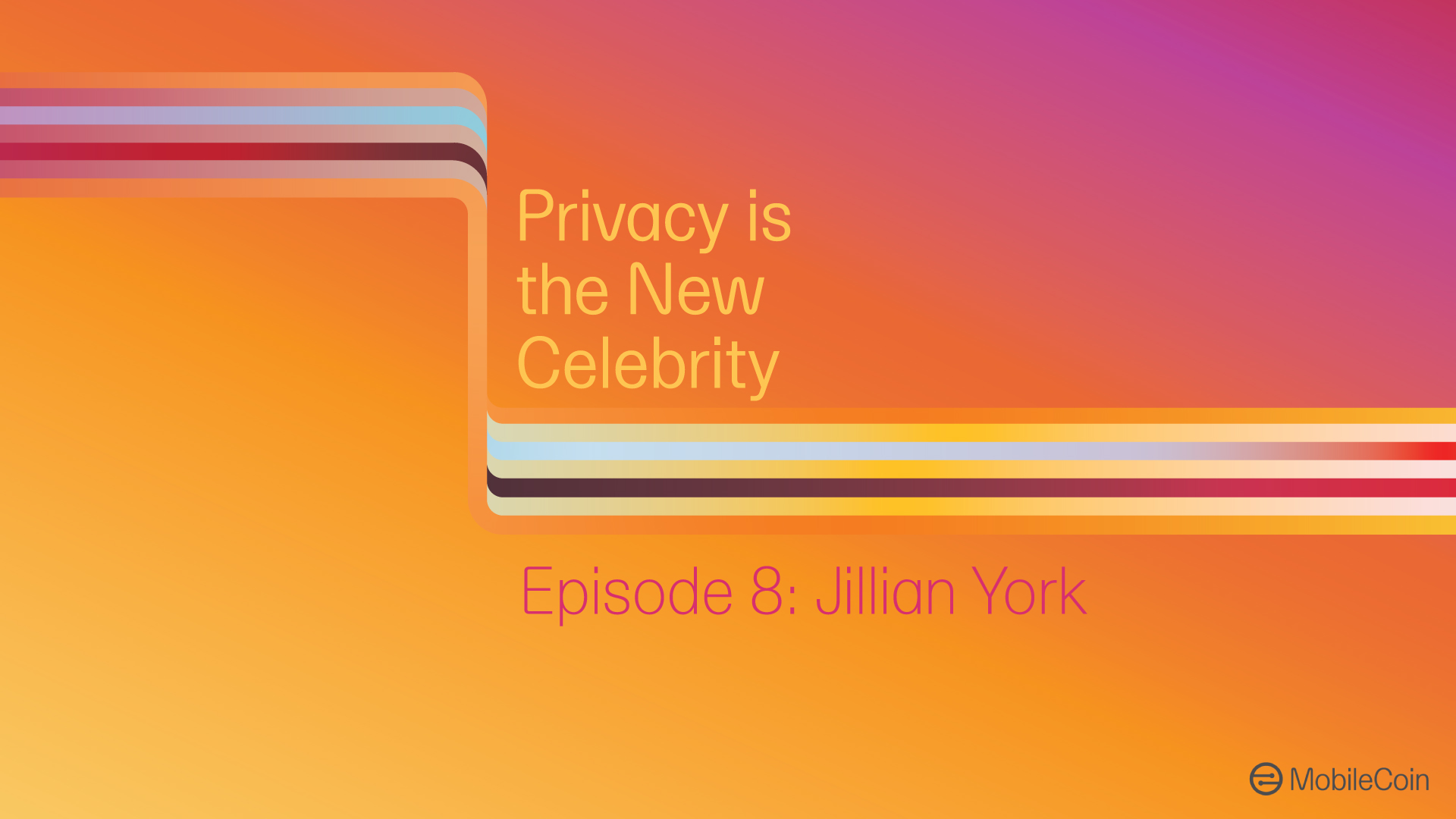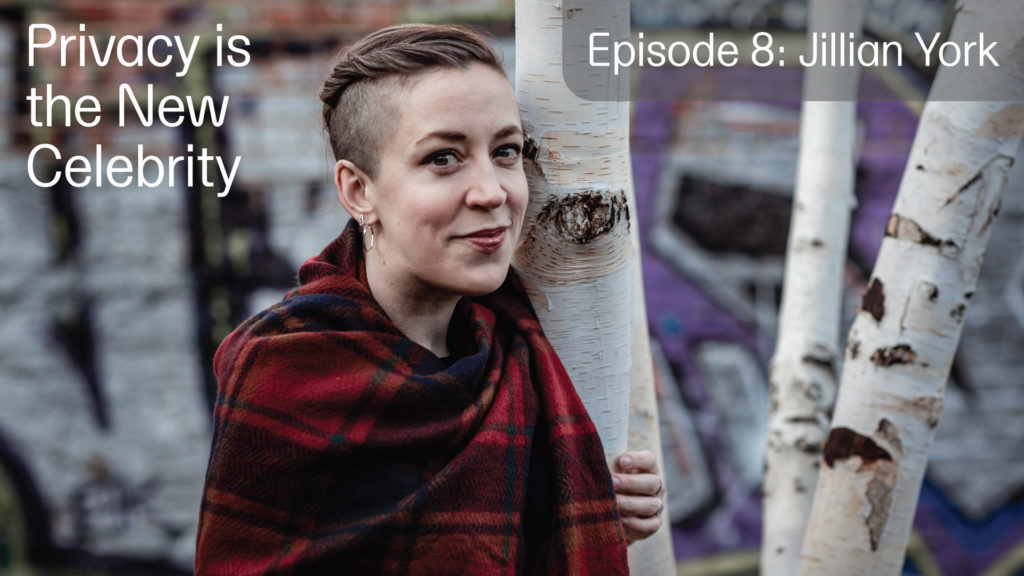Privacy is the New Celebrity EP 8: Jillian York

Is censorship the solution to hate speech online? Jillian York explores this question with Brady Forrest and shares her first encounter with censorship. Brady is Head of Business Development at MobileCoin and Jillian is the Director for International Freedom of Expression at the Electronic Frontier Foundation. She recently wrote a book titled Silicon Values: The Future of Free Speech Under Surveillance Capitalism.

Jillian York first encountered internet censorship when she was teaching English in Morocco about a decade ago. The government there was censoring the internet by blocking things at the root. Jillian recalls a situation where a person she knew created a Facebook page calling for a separation between education and religion — crossing a red line in Morocco. The page was removed from Facebook repeatedly. Although she never uncovered if it was Facebook or the government that was behind removing the page, it made her begin to question what role corporations play in censorship.
Jillian goes on to explain how artists are at risk of censorship outside of galleries and museums.
“Yes, I do think that artists are at risk, and I think it depends on the topic that their art is about. So obviously in the US and the EU, there is quite a bit of artistic freedom. There’s a wide range of art, and even when it comes to things like sexual content and nude art. I think that when you go to galleries and museums in the US or Europe you will see a wide range of things, but those same rules don’t apply on the internet. What we’ve seen specifically around nude expression and sexual expression is an increased crackdown over the past few years. It’s hard to pinpoint where exactly it started, but I would say that the root cause of it does come from a particular sense of American morality.”
Brady and Jillian talk about the differences between content moderation in Germany and the US, and whether it’s possible for the internet to become both freer and safer at the same time. Jillian highlights that all of the major platforms are based in the US and most have American CEOs who might not consider how other cultures may not see sex and nudity in the same way.
But sexual content is just one complex issue surrounding censorship. Jillian also writes about censorship in politics like Facebook and Twitter’s role in content moderation. Jillian urges that we should be concerned about the precedent that it sets.
Germany has very strict laws around hate speech and a recent law holds platforms like Facebook accountable rather than individual users. Since the law came about, over a dozen countries have passed similar laws, some more aggressive than others. Jillian states that she does not think this is the right path toward ending hate speech. In fact, she’s not convinced that censorship is the solution to online hate speech at all.
Jillian explains the hypocrisy behind companies over-focusing on content like nudity and women’s bodies while frequently ignoring hate speech and incitement of violence.
“Social platforms over-focus on [censoring] content that is not harmful such as women’s nipples and under-focus on content that is truly harmful such as incitement and harassment of vulnerable and marginalized communities.”
Brady and Jillian discuss why companies like Facebook and Twitter have had such major problems with content moderation and debate the boundaries between necessary de-platforming and unintended consequences on free speech. “We need to rethink the system of content moderation from the ground up”, says Jillian.
You can check out Brady’s entire conversation with Jillian York on Apple Podcasts, Spotify, or Buzzsprout. While you’re listening, don’t forget to subscribe to Privacy is the New Celebrity Podcast on your favorite streaming service.
If you enjoyed this blog, subscribe here for privacy commentary, product updates and news about upcoming events.